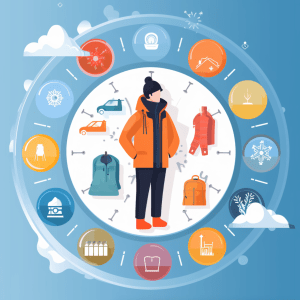The retail industry, always a hotbed of competition and innovation, has a new tool in its arsenal: artificial intelligence (AI). Major players leverage this transformative technology to streamline operations, enhance customer experience, and skyrocket profits. AI is revolutionizing retail, but are you harnessing the power of cutting-edge AI tools in your retail business?
Let’s dive into some ways you can harness the power of AI and some shining examples of successful AI implementation in retail.
Exploring the Impact of AI Tools in the Retail Industry
Artificial intelligence is not merely a futuristic concept; it’s a dynamic force that’s here now. It has quickly risen to be an essential tool that allows retailers to delve into extensive data analysis, offering predictions for sales forecasting and personalized marketing strategies.
The predictive insights of AI empower retailers to finetune their customer service and effectively manage inventory. The result is a compelling growth in revenue for retailers who have the vision to adopt and integrate this technology into their operations.
Thus, the AI revolution in retail is here, and its influence is undeniable.

Improving Efficiency with AI In Retail
The magic of AI lies not only in its ability to streamline operations but also in its power to curtail expenses. One of AI’s most significant strengths is its knack for predictive analytics, which optimizes the supply chain, enabling accurate demand forecasts. This precision lessens the burden of overstocking or understocking, creating tangible financial savings.
Additionally, AI can take over repetitive tasks, freeing up your team for more strategic pursuits. This shift in labor allocation doesn’t just enhance productivity; it also effectively trims labor costs.
Here are some common ways retail giants are utilizing AI to streamline routine daily tasks.
- Data entry
- Payroll processing
- Performance reviews
- Employee onboarding
- User equipment provisioning
- Recruitment screenings
- Marketing campaigning
- Incident logging
- Issue categorization
- Root cause identification
- Resolution recommendations
AI assistants and desk copilots can handle routine inquiries, send r
Real-time notifications, and even identify training needs for certain employees. This enhances efficiency and enables human employees to concentrate on complex tasks that require judgment and expertise.
If used correctly, AI’s potential to cut costs is game-changing for retailers.
Enhancing Sales: The Customer Experience with AI
Artificial intelligence is proving to be a crucial asset in enhancing sales and delivering stellar customer experiences in retail. By deploying AI-powered chatbots, retailers can offer their customers round-the-clock service, addressing queries and resolving issues promptly.
AI’s ability to personalize recommendations and leverage individual consumer data is not only boosting sales but also improving customer satisfaction levels.
Moreover, AI’s capacity to dissect customer sentiment from reviews and social media posts gives retailers the tools to adapt to customer preferences proactively. Ultimately, this effective use of AI in engaging and understanding customers transforms the retail industry.
Some Shining Examples
Are you ready to implement cutting-edge AI tools into your retail business? Here are some shining examples of retail giants already leveraging AI technology to boost profits, cut costs, and maximize the customer experience.
Lowe’s
In 2016, Lowe’s was one of the first retailers to introduce in-store robots. The LoweBot would roam the aisles of the store allowing customers to ask it questions or type questions in on its large touch front screen, helping customers to locate needed items and navigate the aisles more easily.
In addition to aiding customers, the LoweBot also scans shelves, providing real-time inventory checks, especially during peak shopping hours. Overall, the Lowebot was so successful that in 2023, Lowe’s began testing autonomous security robots.
According to Lowe’s, these security robots are not intended to replace security personnel but intended to aid them. In various Lowe’s locations, you can find them patrolling parking lots and store aisles, giving useful feedback to security personnel and Lowe’s administrative staff.
Walgreens
Specializing in pharmaceutical products and daily use items, Walgreens has implemented an AI program to track flu and virus spread through their pharmacies.
Walgreens’ AI program utilizes data from antiviral prescriptions to track the spread of the flu in areas spanning over 8,000 locations across the country. Their interactive flu map informs customers of how bad the flu is in their area. Moreover, it also informs Walgreens branches of what flu-related products need restocking or more inventory in infected areas.
North Face
 With the right AI software, you can track when potential customers are browsing your inventory, what they are browsing, and when they move on without purchasing. Failing to convert interested parties into real customers is a concern for any retailer. North Face has figured out a way to help prevent this with its cognitive computing technology.
With the right AI software, you can track when potential customers are browsing your inventory, what they are browsing, and when they move on without purchasing. Failing to convert interested parties into real customers is a concern for any retailer. North Face has figured out a way to help prevent this with its cognitive computing technology.
Rather than expecting their customers to sift through page after page of inventory to find the right fit, North Face has recognized that conversion requires swift help and easy-to-navigate e-commerce pages.
Their AI shopper tool asks a series of pointed questions and directs the consumer right to the options that fit their needs. It asks questions about where they will be wearing the outerwear, what activity they’ll be doing, and what weather they anticipate. With these things in mind, North Face can make personal recommendations, saving consumers time and effort while boosting their sales and customer satisfaction scores.
Uniqlo
The universal clothing titan Uniqlo has reduced customer service personnel costs with their virtual shopping assistant IQ. This virtual shopping assistant allows customers to chat anytime, view order statuses, find products and locations, and even do user-friendly exchanges and returns.
Additionally, this AI feature helps with sizing and offers personal suggestions based on your past and current preferences and purchases.
Zara
Fashion retailer Zara has turned to AI to further its retail goals, which are paying off. The AI technology Zara uses gives feedback on everything from design to window displays, print advertisements, and shipping. It gathers data during each sale process and provides feedback on inefficient areas, areas of success, and future inventory forecasts.
Zara’s use of AI across multiple facets is comprehensive and impressive. They utilize AI tools to aid in supply chain management, real-time optimization of inventory levels, and improved customer satisfaction.
Additionally, they can swiftly respond to market trends, consumer demands, and online order filling – thus minimizing their outsourcing drastically.
The Future of AI In Retail
Generative AI is becoming an integral part of the retail industry. In 2024, we will likely see AI making more precise insights, improving customer sentiment analyses, and making a bigger presence in retailers across the globe. Retailers that are embracing AI are experiencing resounding success, cutting costs, and improving the customer experience.
What AI tools is your business implementing, and is it enough? A great way to start implementing AI software in your retail business is to:
- Identify specific time-intensive processes in your business
- Identify what opportunities are available in these processes for AI implementation
- Begin to hire personnel to forward these initiatives
If you don’t want to be left behind in the evolving world of retail, you must begin utilizing AI technology because it’s here to stay. Not to mention, its presence is only going to grow.




